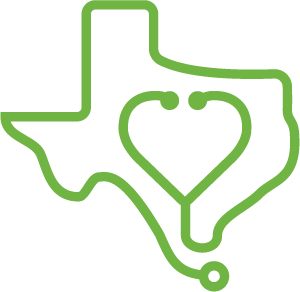Who Is Your Health Care Advocate?
When faced with health issues, having an advocate who can help navigate a complex health care system may significantly impact outcomes and quality of care. While some of us have the experience and skillset to advocate for our own care, others may need to rely on family and friends who step in to help. Illness – chronic or sudden -- can make one feel alone, scared, confused and unprepared for the challenges ahead. Recently, I experienced this firsthand as an unexpected health event turned my own world upside down.
On Saturday afternoon while my family and I were headed to a baseball game, my right contact lens seemed to be out of focus. I messed with it for most of the first two innings and then noticed my left contact doing the same. We left the game early to allow me to remove my contacts and put on my glasses. Upon doing this, I realized it was not a contact issue but something far more significant. My vision was suddenly blurry. If anyone has ever googled sudden blurry vision or vision loss, the first thing that pops up is “Go to the emergency room.” We called our dear friends who took our children and headed to the nearest emergency room.
I didn’t realize how serious it could be until I was pushed to the front of the line and stroke protocols were being performed. Luckily, both a stroke and brain bleed were ruled out and I was treated onsite for an ocular migraine. While the cocktail of medicine I was administered didn’t help, I was relieved to have the scary stuff ruled out. I returned home and scheduled an appointment with my optometrist for first thing Monday morning. This began the days of rushing from one doctor to another and from one test to the next. A lot of scary terms have been thrown out there as we try to figure out what is happening, like MS (multiple sclerosis) and tumors.
One clean test after another has perplexed my doctors, leading me to be referred to a neuro-ophthalmologist. Anyone who knows that specialty exists or has ever had to see one, knows that these are a unique class of specialists with long wait lists.
I am one of the lucky ones who has had advocates helping me navigate this whole process from start to finish beginning with my husband. My lack of vision has made life difficult, and my husband has spent countless hours driving me from appointment to appointment and talking to medical offices. I was originally told that an appointment with a neuro-ophthalmologist would not happen until October, but am so grateful to have friends who have stepped in to make calls, do research, and help find an alternative. In fact, I was able to see one this week and am on a path to healing.
I have had exceptional care. Every doctor and nurse, including those in the emergency room, have been caring, kind, and exceedingly helpful. I am so appreciative of health insurance that has covered most upfront costs outside of my expected deductibles and co-pays related to this incident.
I am beyond grateful for my advocates, my family, my friends, and health care professionals alike. So, as we move through Minority Health Month, consider this… WHO IS YOUR ADVOCATE? Or, WHO CAN YOU ADVOCATE FOR? Do you have a neighbor with no family who needs a ride to the doctor or pharmacy? Do you know a working parent with time restrictions preventing them from being able to make important health care phone calls? Check in on your family, friends, and neighbors, and let’s be each other’s health advocates! Our collective health truly depends on it!


